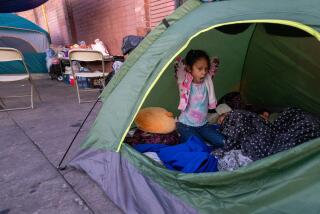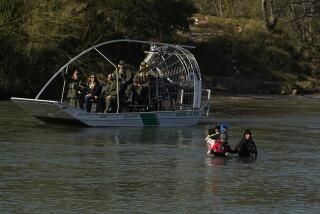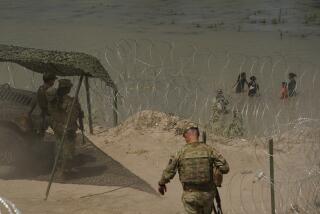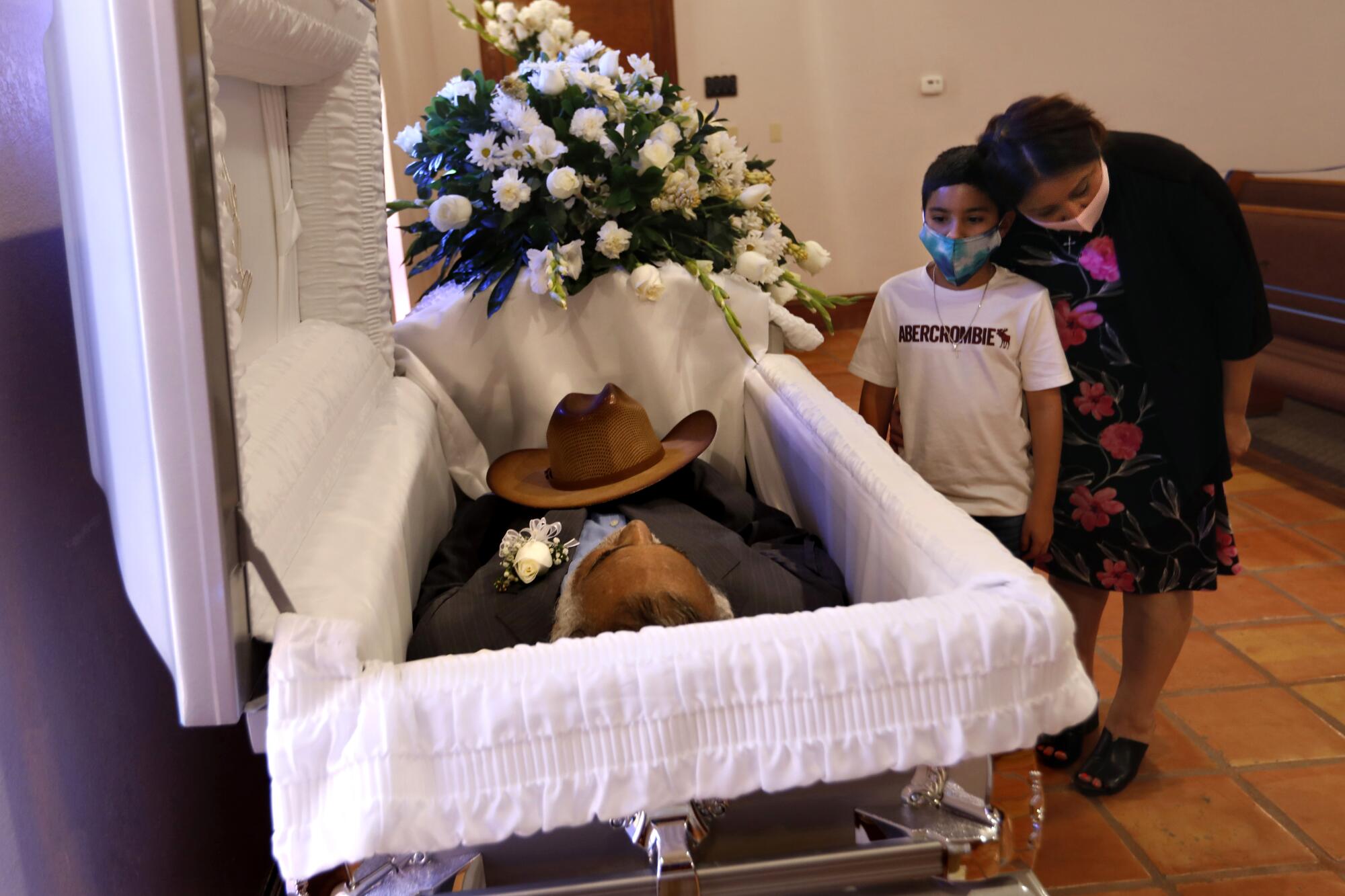
At 2 days old, David Alejandro Vega weighed just 3 pounds, spindly arms and legs reaching from his neonatal intensive care incubator for a mother he couldn’t touch.
She was quarantined across the hospital in a maternal coronavirus ward.
Like many expectant mothers with COVID-19, Mayra Vega delivered several weeks premature, by caesarean section, on Thursday. She was barred from holding, nursing or even seeing her son, beyond the photographs and videos nurses let her glimpse from a computer screen.
David was born into a pandemic, but Vega, 27, was grateful he tested negative for the virus, which has already killed 398 in the surrounding Rio Grande Valley, about 10% of Texas’ COVID-19 deaths.
“If he’s OK, I’m OK. It doesn’t matter how long it takes” to hold him, Vega said in Spanish from behind a mask in her isolated hospital room.
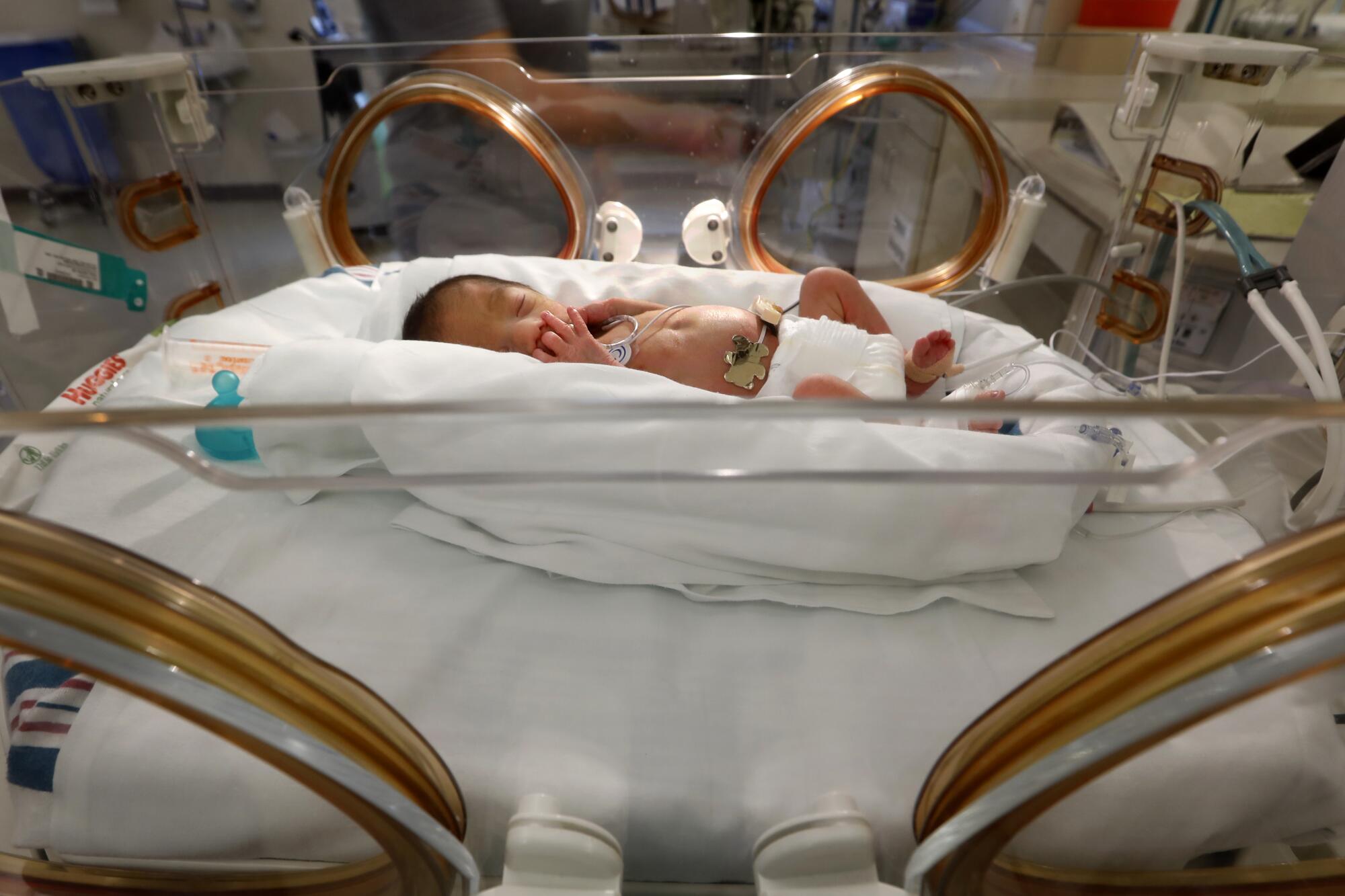
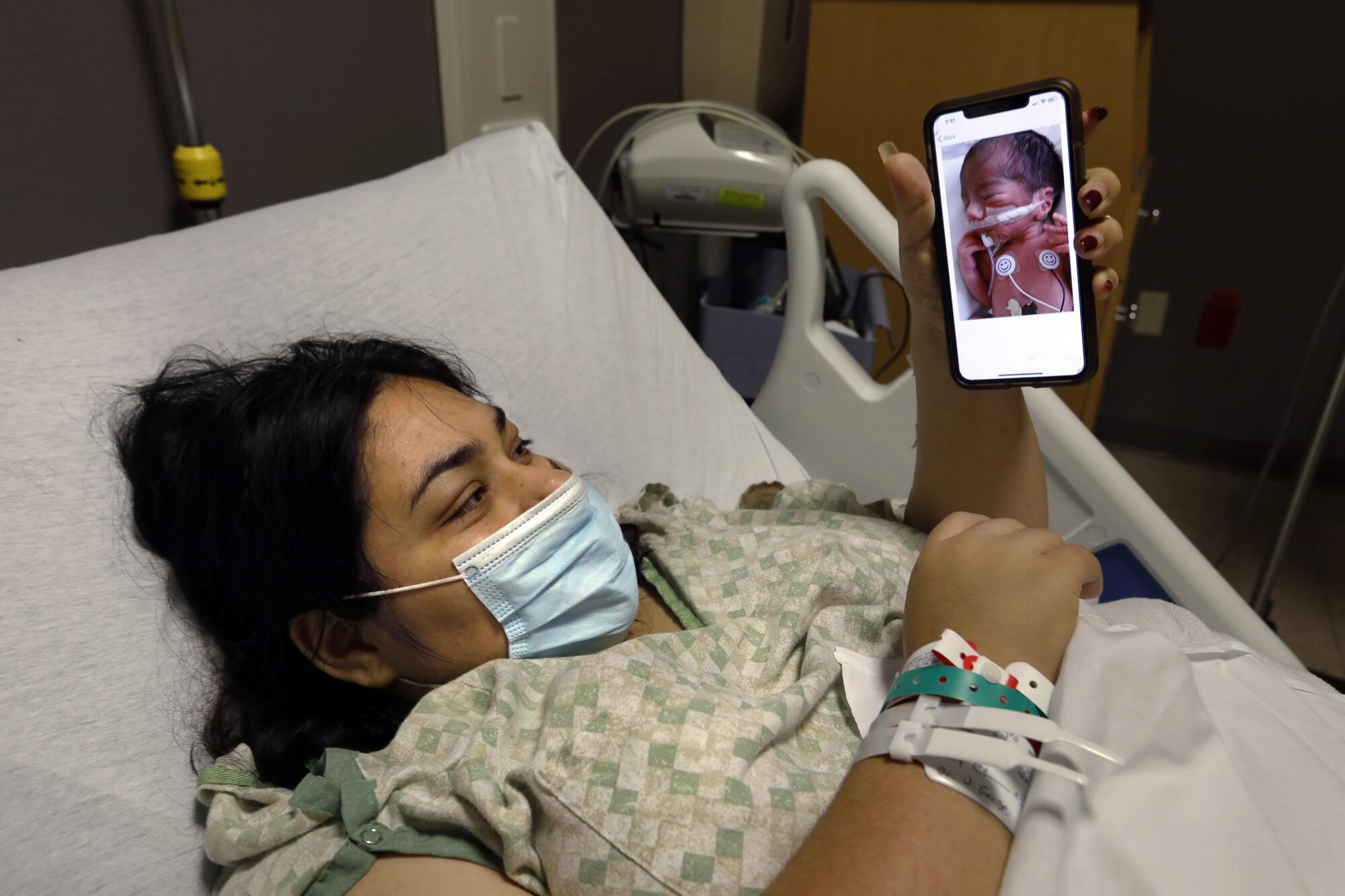
But few things are OK in South Texas. Days and nights bring whispered names and fresh pain.
The coronavirus has upended fronterizo, or borderland, traditions from birth to death in the valley, one of the country’s poorest and hardest-hit hot spots. The virus has cut through generations of families. It has taken pastors and farmworkers. Deaths here are multiplying, crematoriums are backed up for weeks, and at one cemetery, so many graves were dug that the backhoe broke down and men had to take to shovels.
Many were vulnerable from the beginning, and as Texas reopened in May, extended Tejano families went back to work, even though many were uninsured and suffered high rates of diabetes and obesity, putting them at greater risk of dying from the virus.
On sweltering weekends, families gathered for church, pachanga parties and beach vacations on South Padre Island. Within weeks, many were quarantined, hospitalized or dead. The valley’s COVID-19 death rate this month was 17 per 100,000, exponentially more than the state (3 per 100,000). Gov. Greg Abbott met virtually Tuesday with local leaders, promising to send more resources, even as he prevented officials from enforcing stay-home orders.
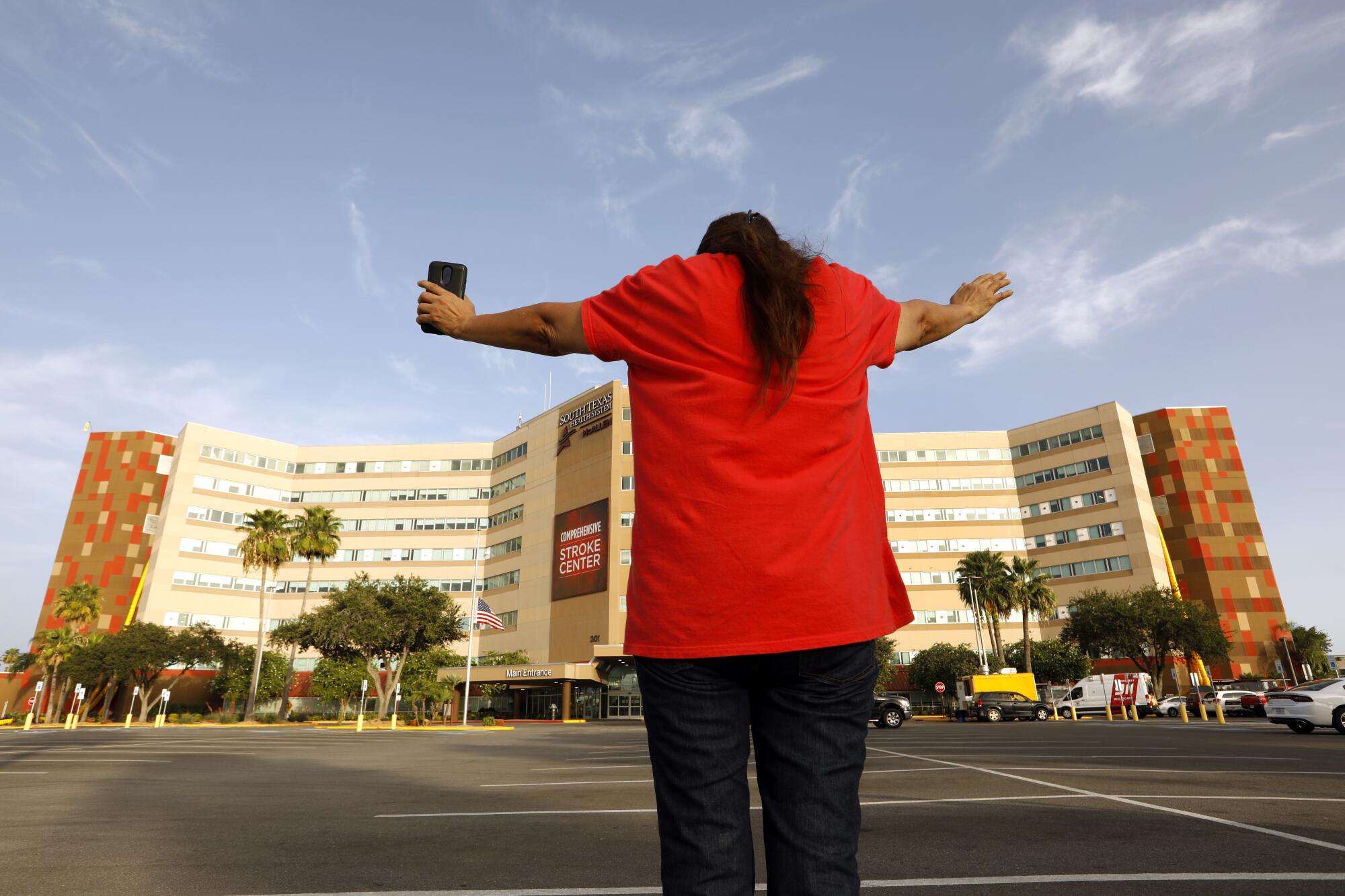
The valley has become a landscape of prayers, graves and sorrow: hospitals built temporary COVID-19 wards to care for hundreds of new patients, scores of bodies lie stacked in refrigerated trailers and hundreds of contract nurses, some dispatched from as far as Florida and New York, have descended on brush land communities clustered along the Rio Grande.
‘It’s hard to find colleagues whose family hasn’t been touched by death.’
— Dr. Carlos Cardenas, CEO of Doctors Hospital at Renaissance
Most of the hospitalizations and deaths this month have been in the heart of the valley in Hidalgo County, where all 2,000 hospital beds are full, said Dr. Ivan Melendez, the county health director, who returned to work last week after recovering from the virus.
“The hospitals are a mess,” he said.
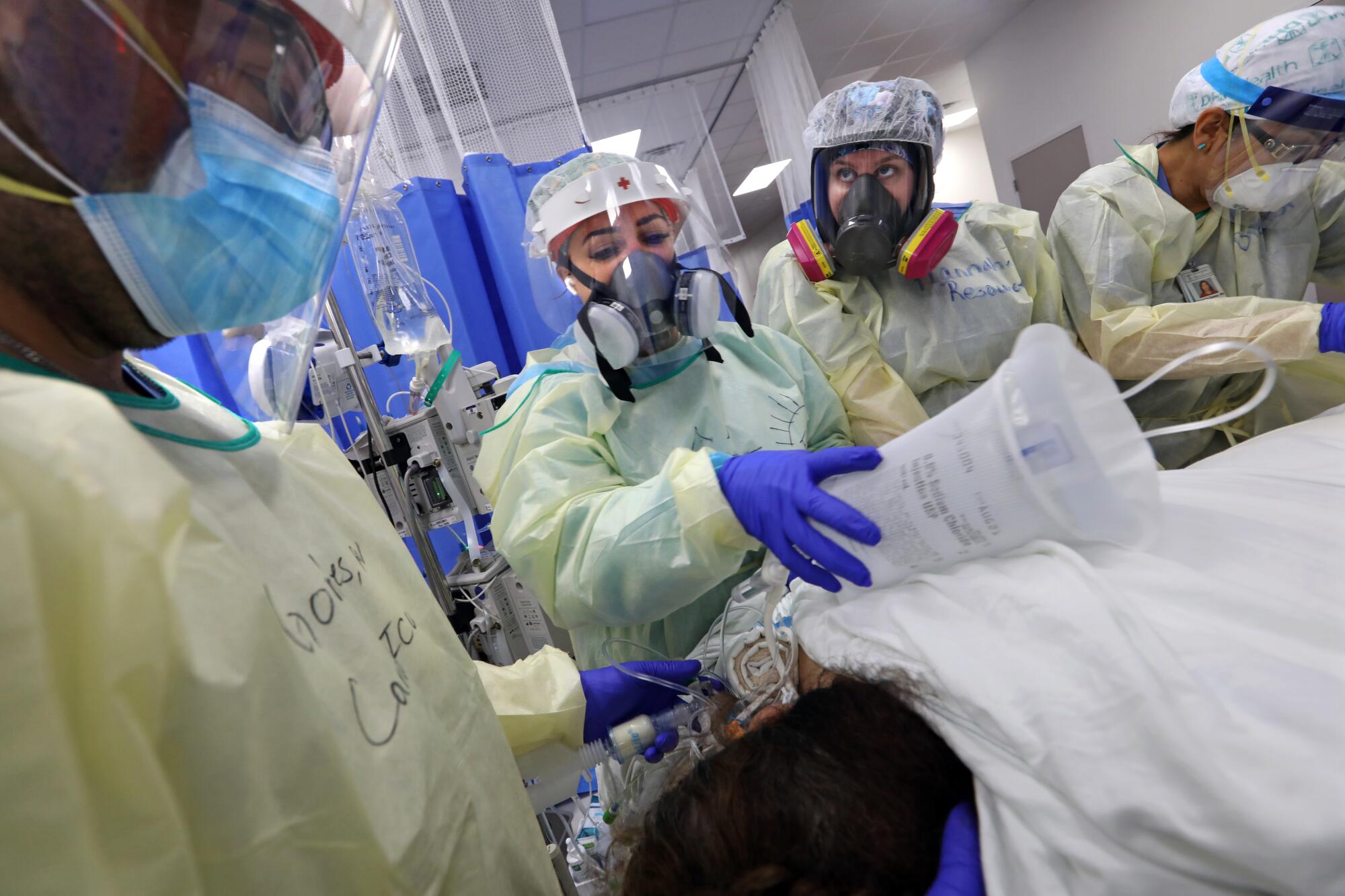
Melendez ordered the start of county schools be postponed until September, even as Abbott has threatened to withhold state funding unless they open for in-person instruction next month.
“How can I, in good faith, open schools when the hospitals cannot accommodate another patient?” said Melendez, a valley native. “We’re saturated.”
In the county seat of Edinburg, DHR Health — a 530-bed, physician-owned facility — added 210 beds for COVID-19 patients last week and was still expanding, said Dr. Robert Martinez, who was leading the hospital’s response.
Since the start of the pandemic in March, it has admitted 454 COVID-19 patients, 107 of whom died, including 96 this month.
“It’s hard to find colleagues whose family hasn’t been touched by death,” said Dr. Carlos Cardenas, the hospital’s chief executive. “We look at life down here in terms of holidays, because families get together Mother’s Day, Father’s Day, Cinco de Mayo. Anytime there is an excuse for our gente to have a party, a pachanga, we worry.”
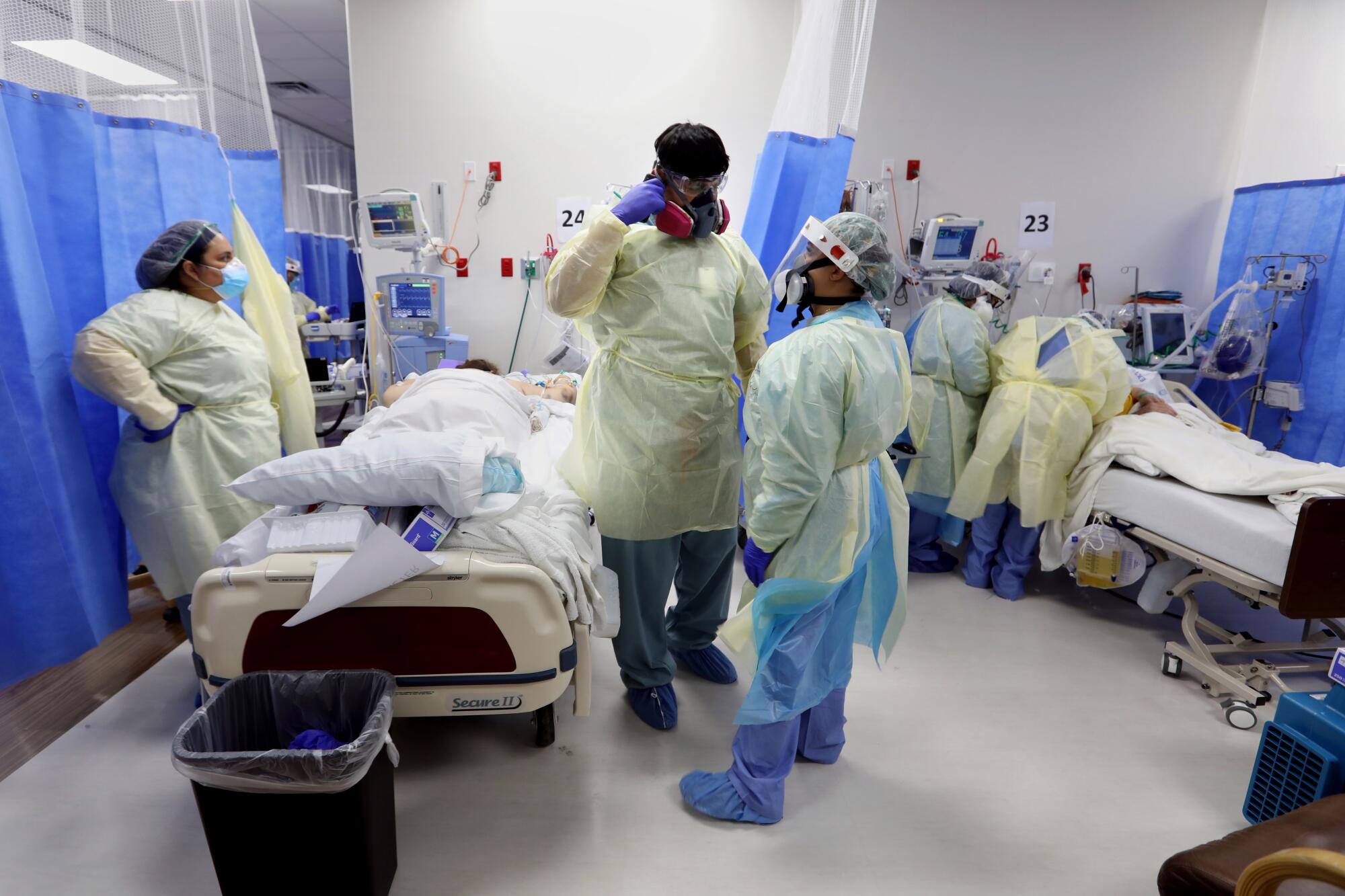
But such celebrations have led to the loss of grandparents, parents and children as young as 15: “This virus is terrible for people with a culture like ours,” he said. “It’s just a tragedy to watch this unfold.”
His hospital last week was treating 197 COVID-19 patients, 62 in intensive care, about half on ventilators. Dozens lay unconscious in one of several new makeshift COVID-19 wards, where visiting nurses scooted between curtained rooms, adjusting beeping ventilators. Many also suffered from morbid obesity, diabetes, high blood pressure and other chronic conditions. The doorways to some rooms were labeled “DNR,” do not resuscitate.
A former hospital staffer posted claims on Twitter this week showing substandard equipment and a female patient in a COVID-19 unit with ants crawling on her back. The staffer said they complained to supervisors and requested that patients be moved to an adjacent hospital handling elective procedures, but that supervisors refused because they wanted to keep the main hospital “clean” of COVID-19.
“The patients are dying left and right,” the staffer wrote.
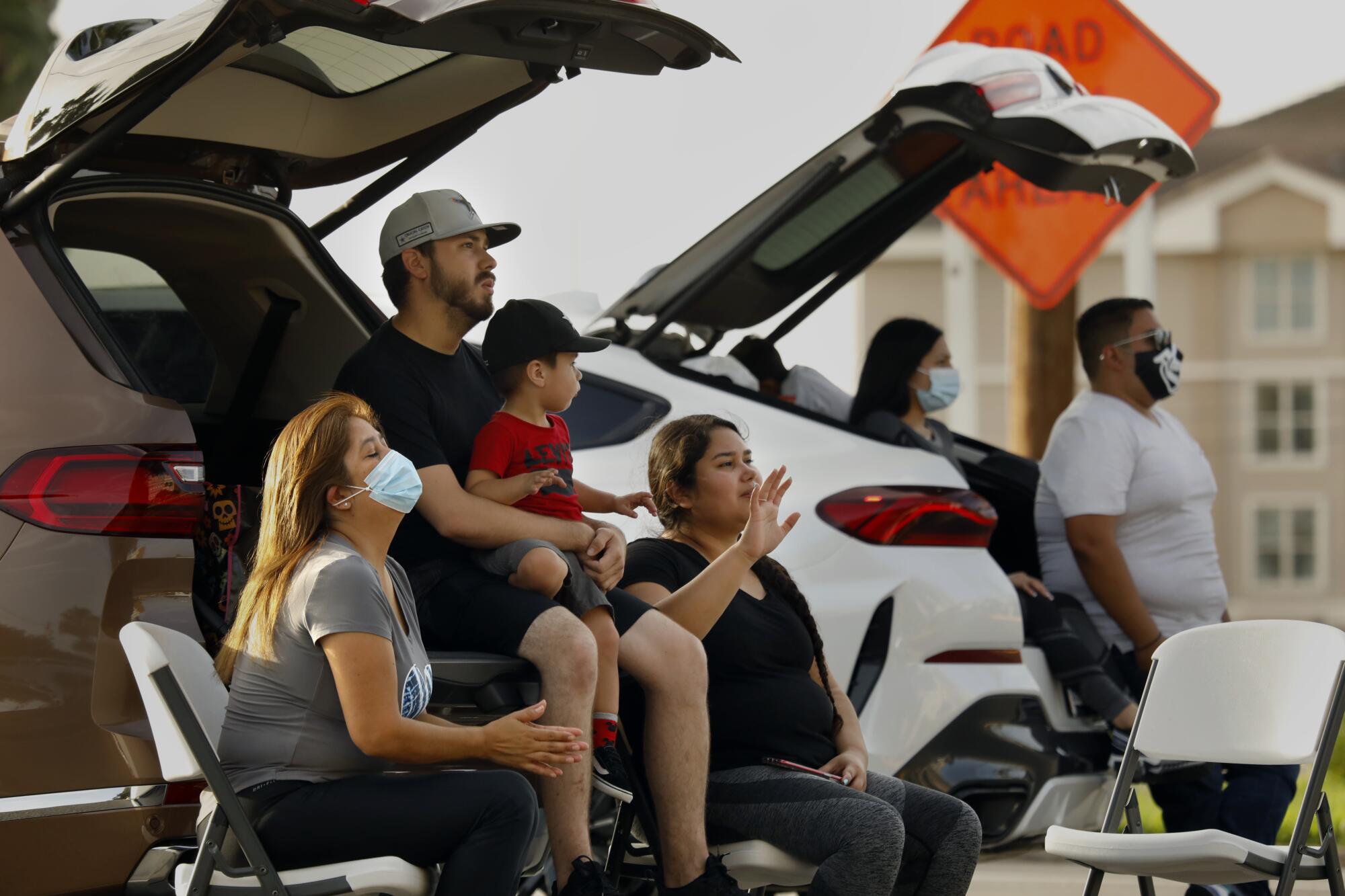
Marissa Castañeda, senior executive vice president of DHR Health, said the claims were being investigated and that the hospital “stands by the efficacy of providing the highest level of care.... The entire Rio Grande Valley healthcare community is being faced with unprecedented times and the number of COVID-19 patients is increasing daily.”
Catrina Rugar, 34, a Florida-based nurse who deployed first to the outbreak in New York City, then to the Edinburg hospital, said she had seen the claims and that nurses had faced shortages of supplies and support.
“It’s the norm in a crisis situation,” Rugar said, noting that some temporary nurses left the hospital in protest this month before completing their contracts.
She said conditions at the hospital had improved, but that nurses still faced shortages of medications and respiratory staff to help with ventilators.
Outside another hospital in nearby McAllen this week, more than 50 people from two local churches formed socially distanced groups in the parking lot to pray for their 37-year-old pastor, Gerardo Garcia, who was hooked to a ventilator.
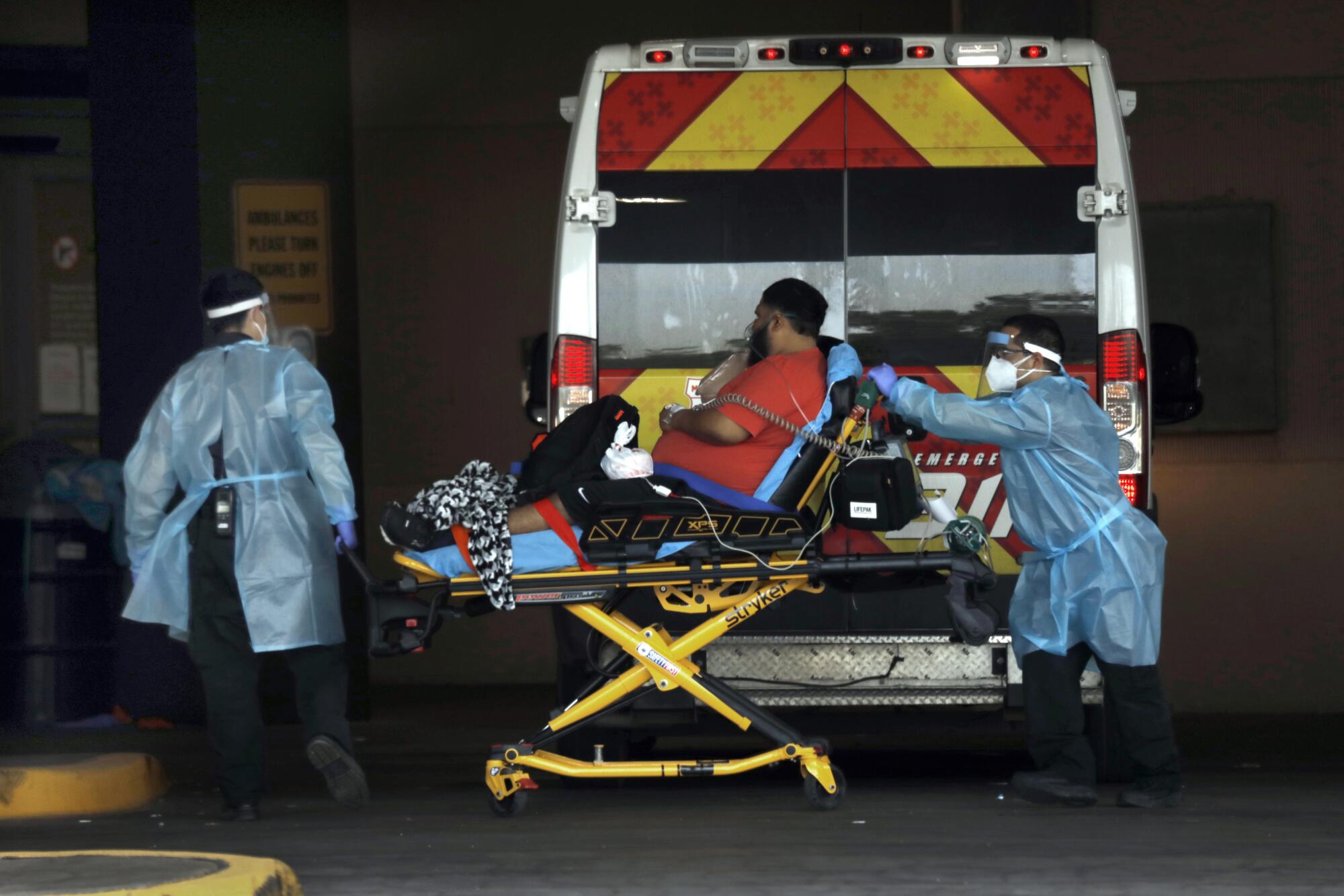
Juan Treviño, 38, a part-time pastor for Congregación Sendas Antiguas, said Garcia visited him when he was hospitalized with COVID-19 last month after his family vacationed with friends on South Padre Island. Treviño‘s mother became infected while working at a nearby migrant-holding area for U.S. Customs and Border Protection, which lost a veteran agent in the valley to COVID-19 earlier this month. Now her husband is sick, too.
That’s how it is here; no one knows who will be taken next.
Hours after he prayed, Treviño learned that Garcia had died.
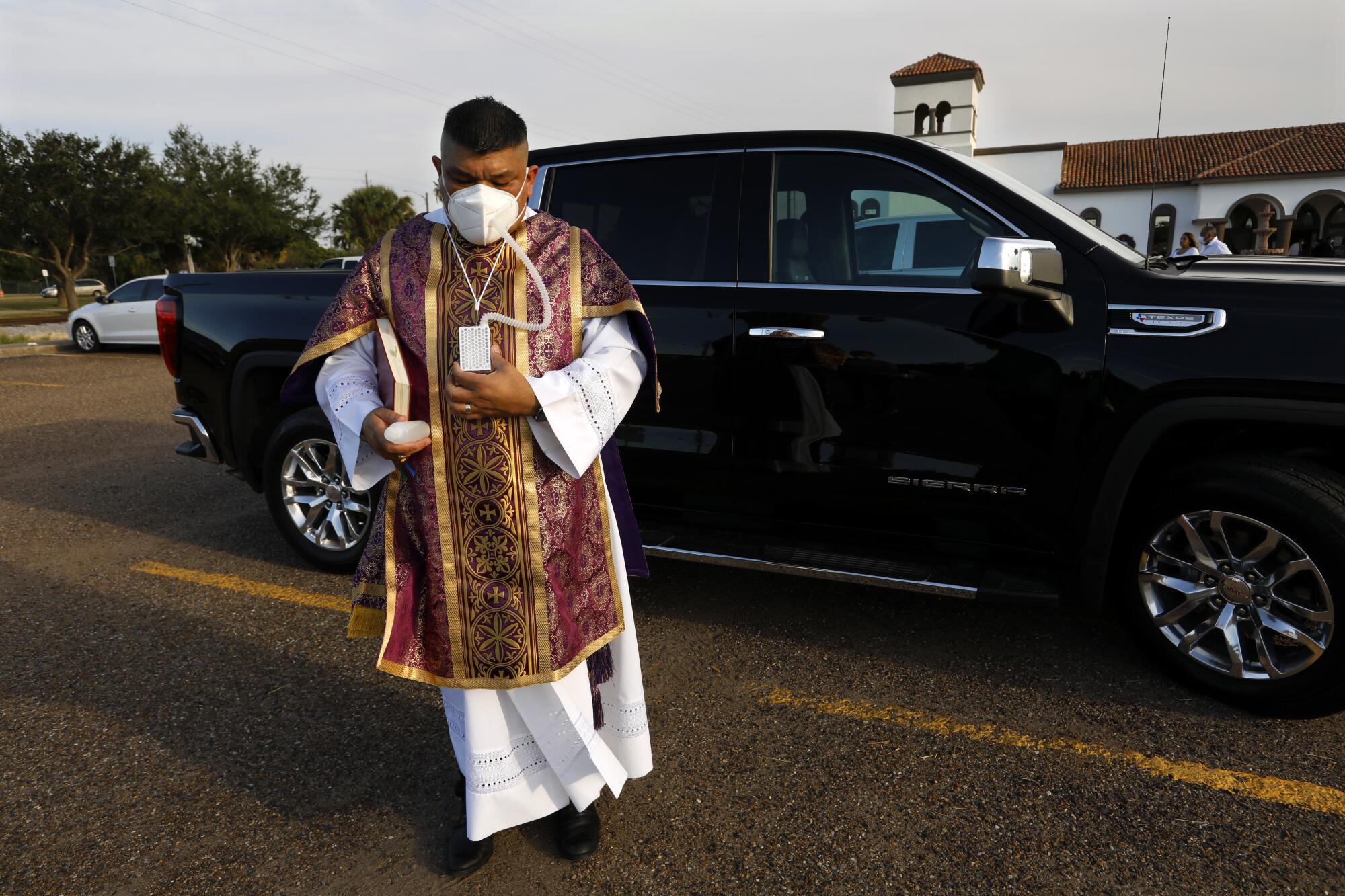
Other valley churches remained open this week, including Our Lady of Guadalupe Catholic Church in Mission, where the Rev. Roy Snipes, 75, stopped baptisms and first communions, but was still performing gravesite funerals, weddings and daily Mass. His doctor told him it was too dangerous for him to keep visiting patients at the local hospital to administer last rites.
On Saturday, one of the couples Snipes married were nurses, the groom at a local COVID-19 unit. All 50 in attendance wore masks, except the bride, whose face was hidden beneath a lace-edged mantilla veil. Every other pew was taped off. Hand sanitizer replaced holy water at entrances. The reception, which had been planned for 400, was postponed.
“I’m surprised they even let them out of the hospital,” said the groom’s mother, Leticia De Leon, 62, an occupational therapist who was careful not to touch her son as they posed for photographs.
He’d been working 14-hour shifts.
“He doesn’t want to tell me, but I see it in his face,” she said.
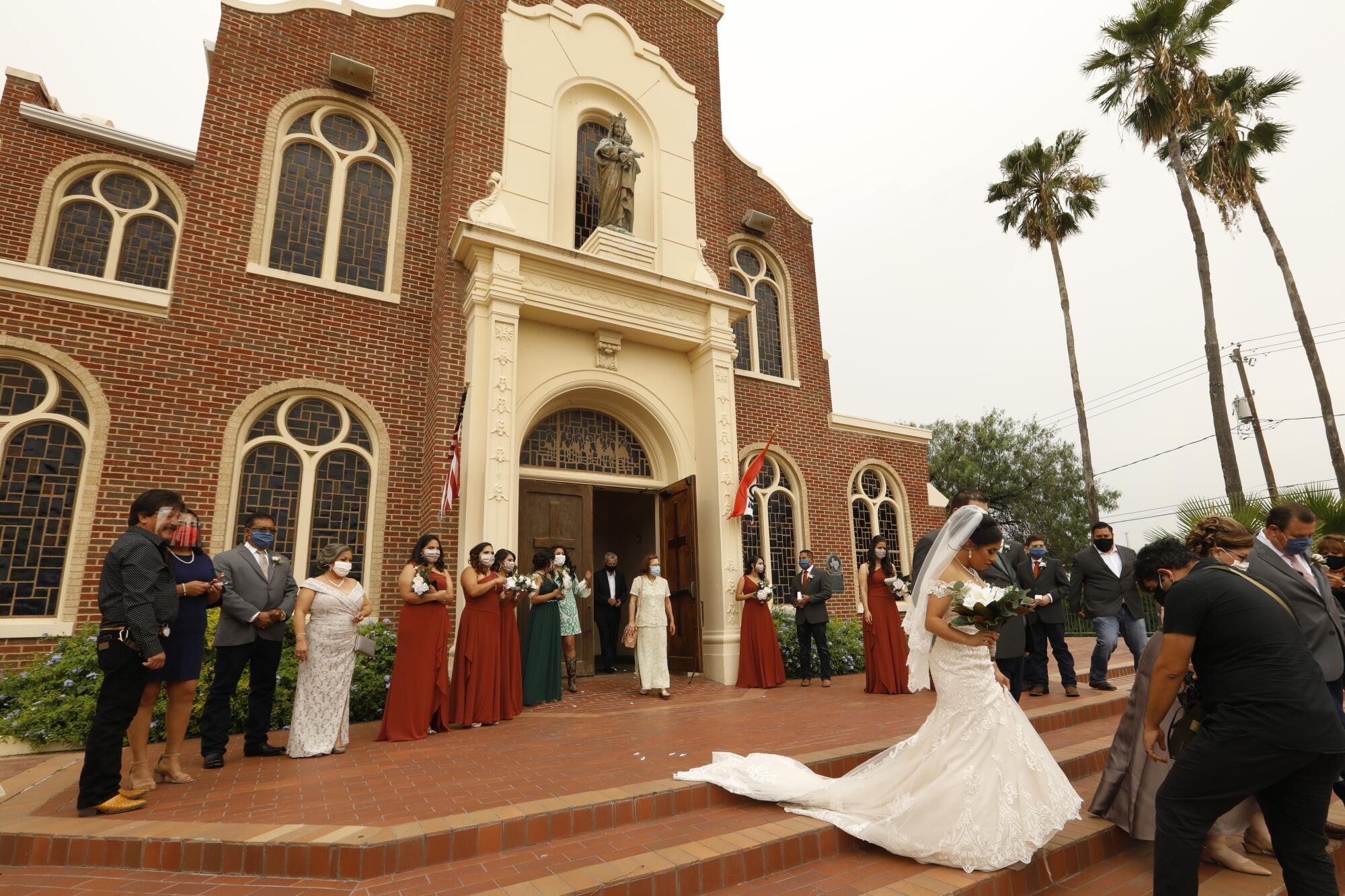
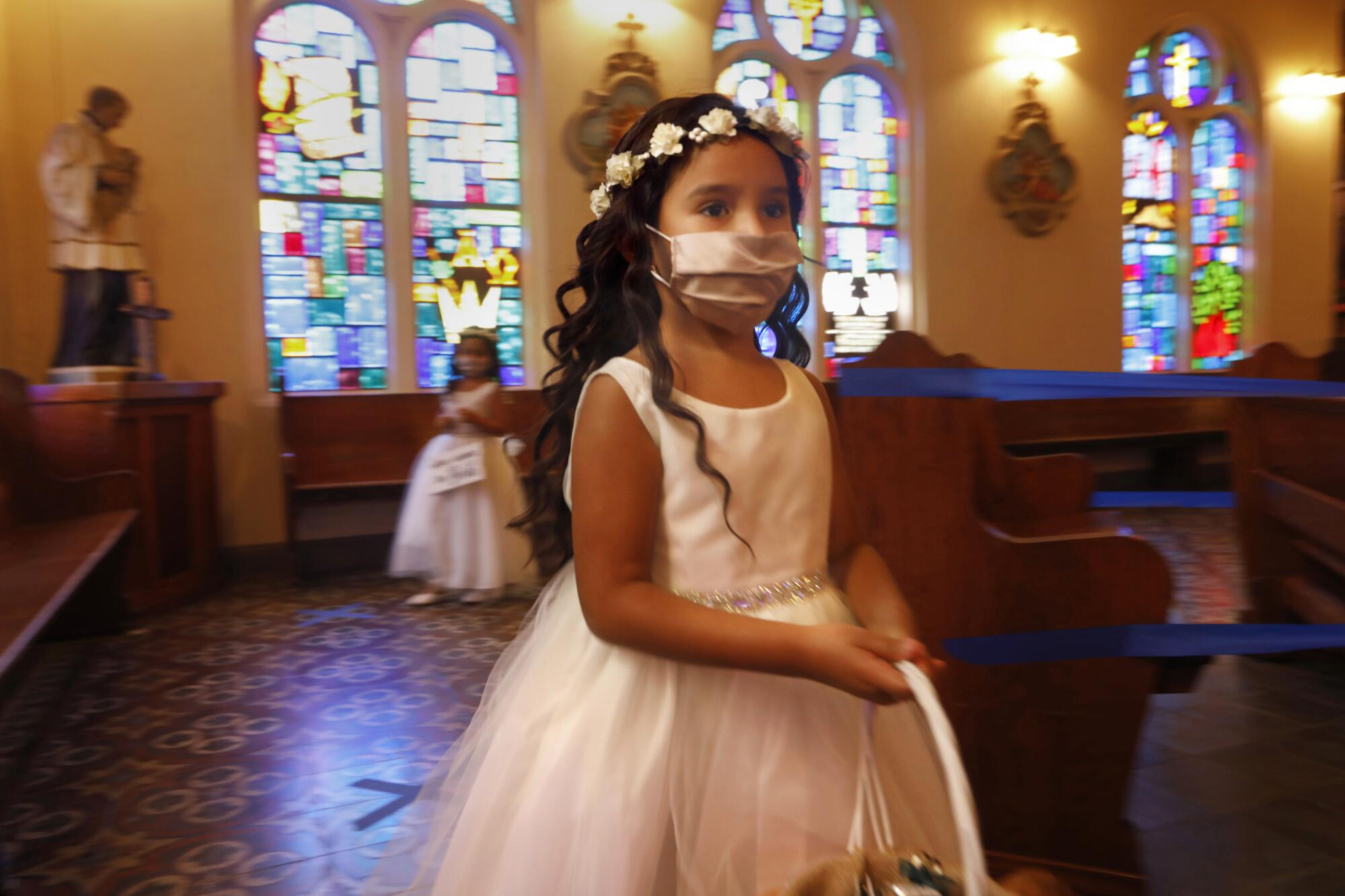
Bridesmaid Roxy Perales, a nurse practitioner, was nervous to attend. She didn’t want to expose her patients, but the masks reassured her.
“Because this is going on doesn’t mean life has to stop,” said Perales, 35. “You’re in South Texas — we know what we’re doing.”
Another valley nurse, Priscilla Garcia, wasn’t so sure. She lost her 70-year-old parents — high school sweethearts — to the virus this month, days apart, then fell ill herself. She self-quarantined in her parents’ brick ranch house, their ashes in wooden boxes on the coffee table.
“We’re in hell right now,” she said.
Her husband, daughter, aunt, uncle and cousin all got the virus, although only her aunt was hospitalized. Garcia persuaded friends and relatives not to return to work, even after authorities cleared them, because they still had symptoms.
“I have so many people sending me information saying, ‘They cleared me to go back to work and I had a fever at work,’” she said. “My aunt is in Rio Grande Regional fighting to not get on a ventilator. She’s fighting hard. She doesn’t even know my mom passed away.”
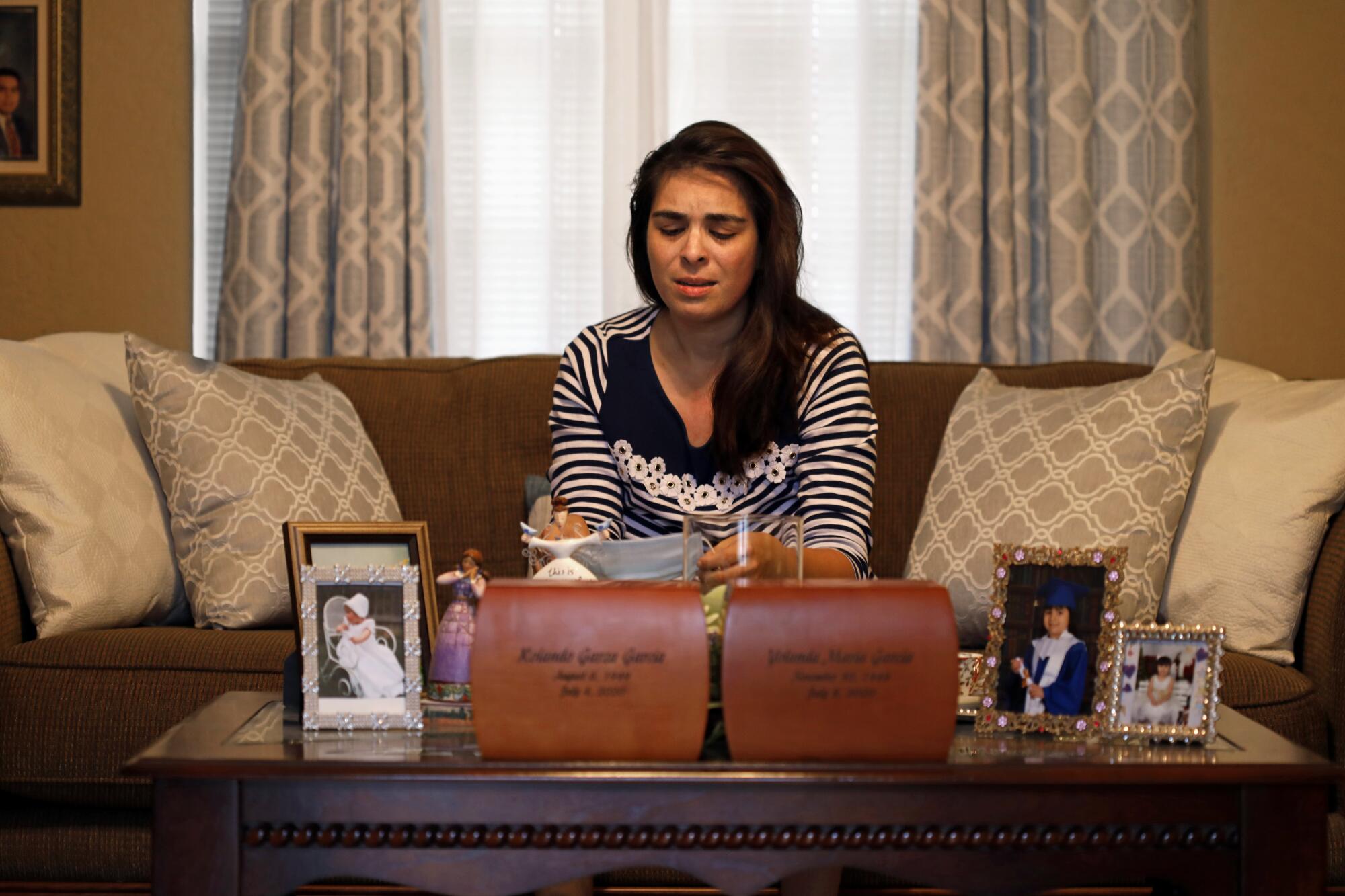
Facebook feeds are full of death. Transport companies that once moved 10 bodies a week were moving twice as many in a day, around the clock. At La Piedad Cemetery in McAllen, where the first ornate graves were erected in 1895, staffers were digging so many this week, their backhoe broke, manager Jose Mata said. He had to hire men to shovel them by hand.
One of the graves was for Fernando Aguirre, 69, who died of COVID-19 last week at the same hospital where, a day later, David Alejandro Vega was born. Aguirre died after attending his granddaughter’s graduation party, where only he and a few others wore masks. Son Fernando “Freddie” Aguirre Jr., 49, didn’t attend and pressured his parents not to.
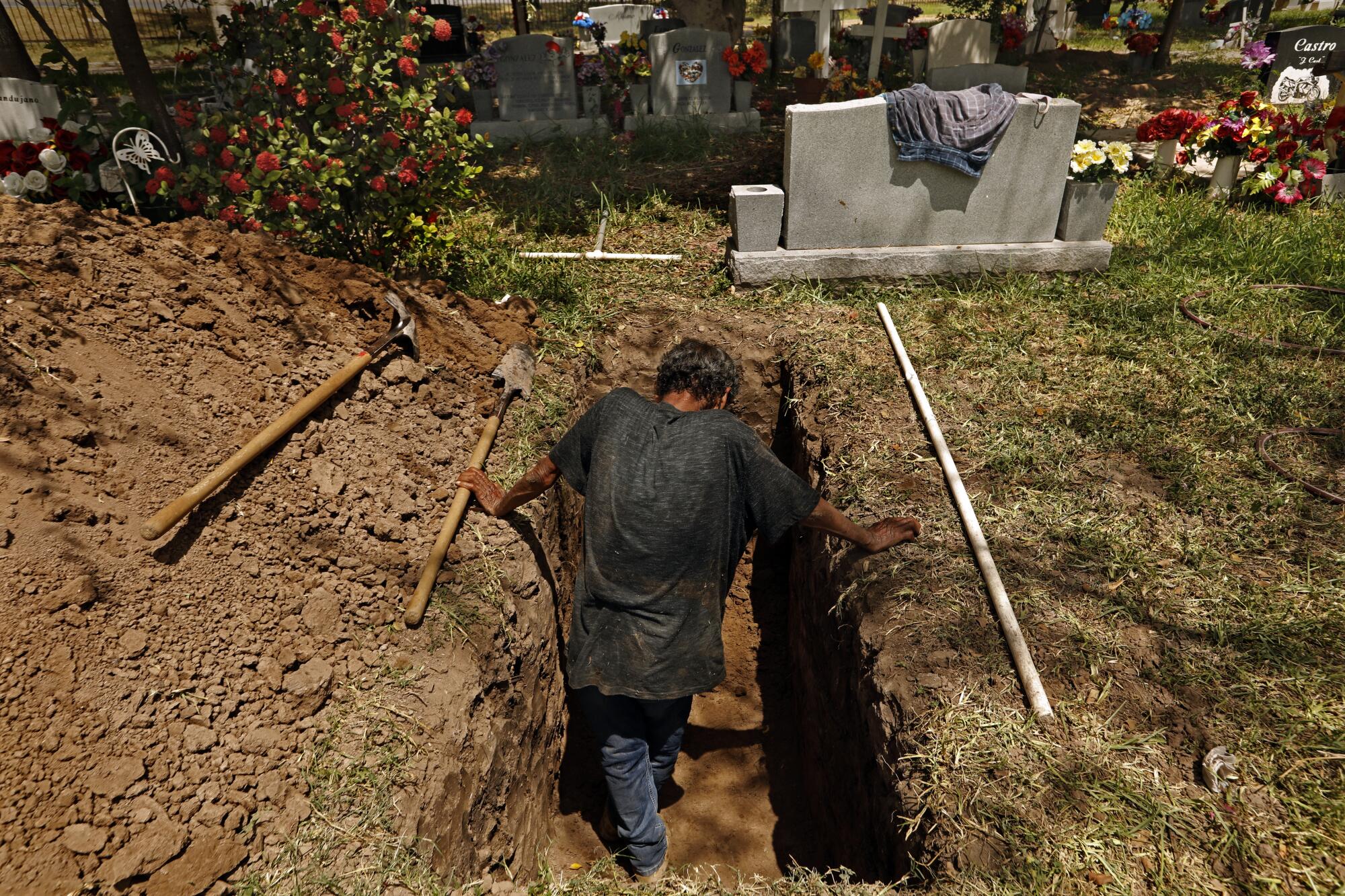
“I tried so hard,” he said as he stood at his father’s gravesite before his burial Tuesday.
His younger sister, who hosted the party, fell ill soon afterward. Their uncle died, then their father. Their mother Ofelia Aguirre, 67, was hospitalized and placed on a ventilator. A plot waited for her next to her husband, beside another fresh grave.
About 20 relatives gathered for Aguirre’s burial, all in masks, including the daughter with COVID-19. She wailed as she placed a white rose atop the grave.
Freddie Aguirre and his other three siblings kept their distance, waving instead of hugging. So far, they had tested negative. But they were more afraid than ever.
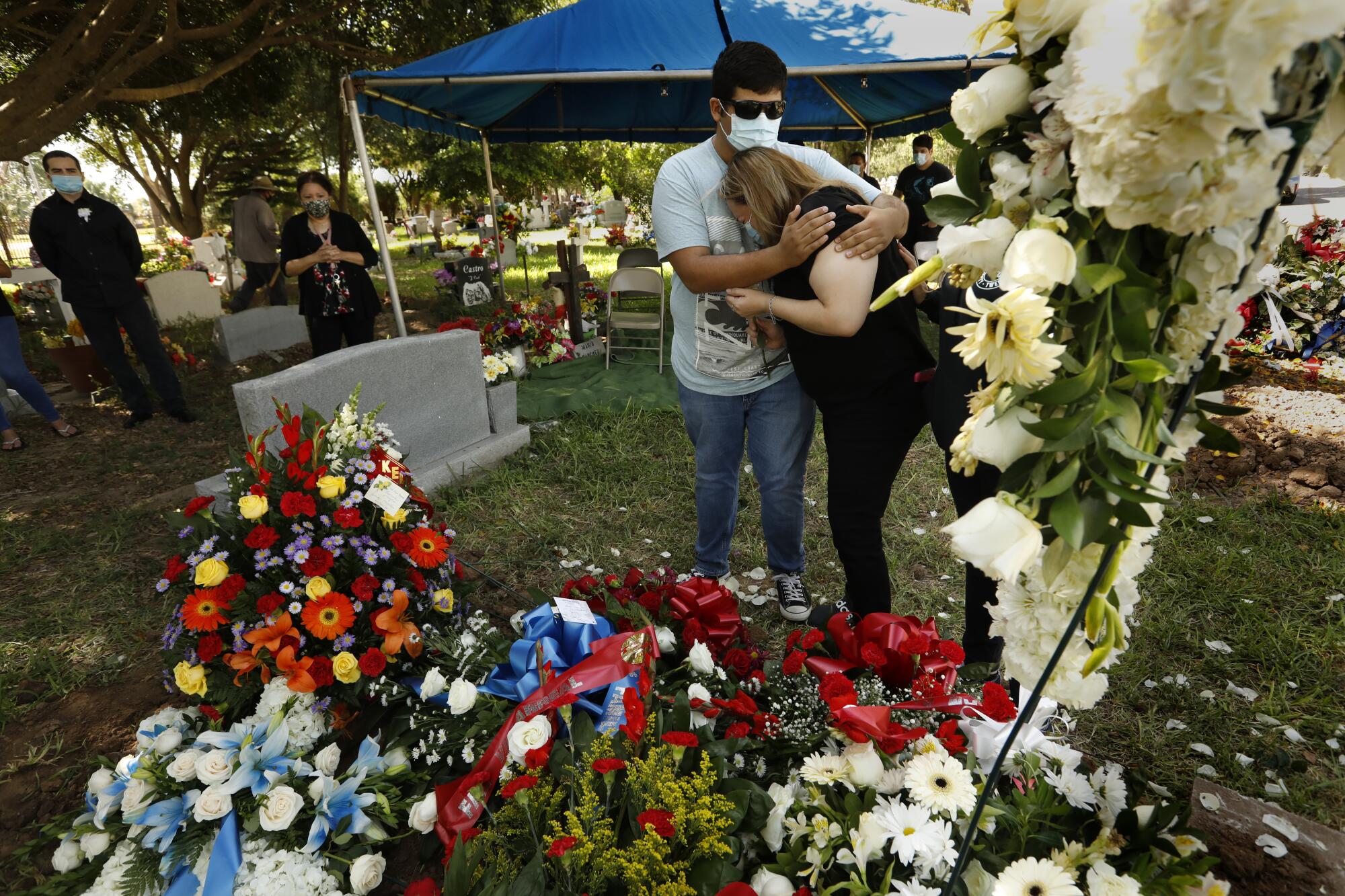
More to Read
Start your day right
Sign up for Essential California for news, features and recommendations from the L.A. Times and beyond in your inbox six days a week.
You may occasionally receive promotional content from the Los Angeles Times.

